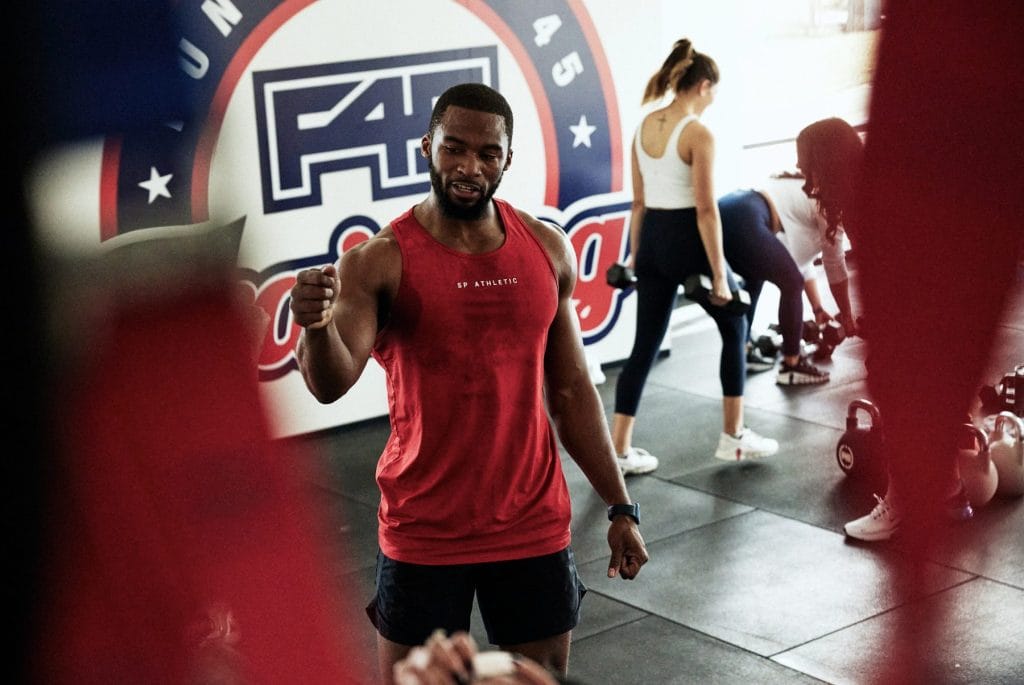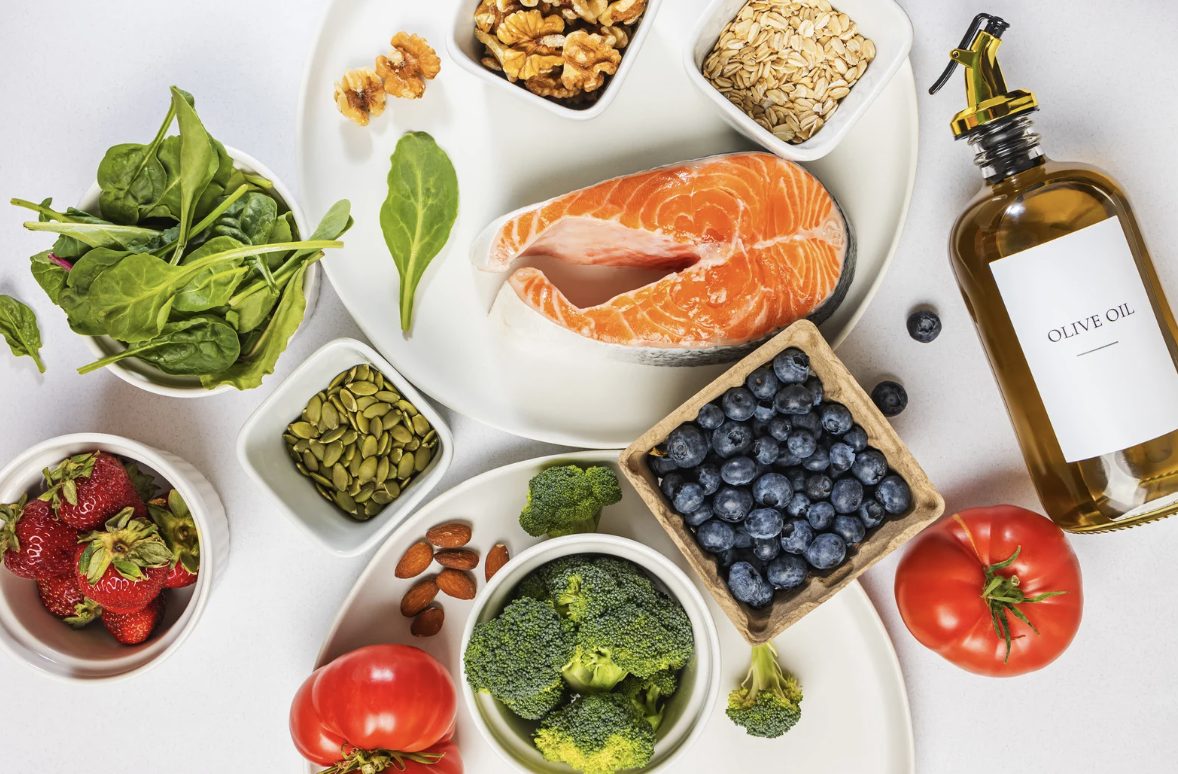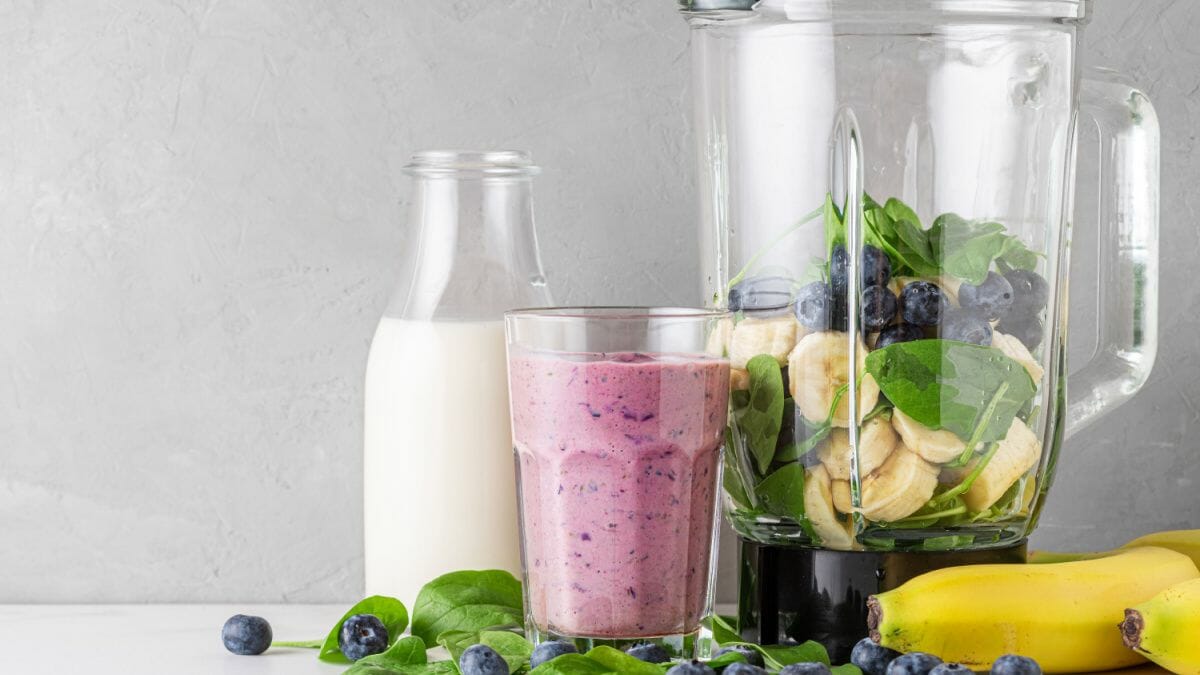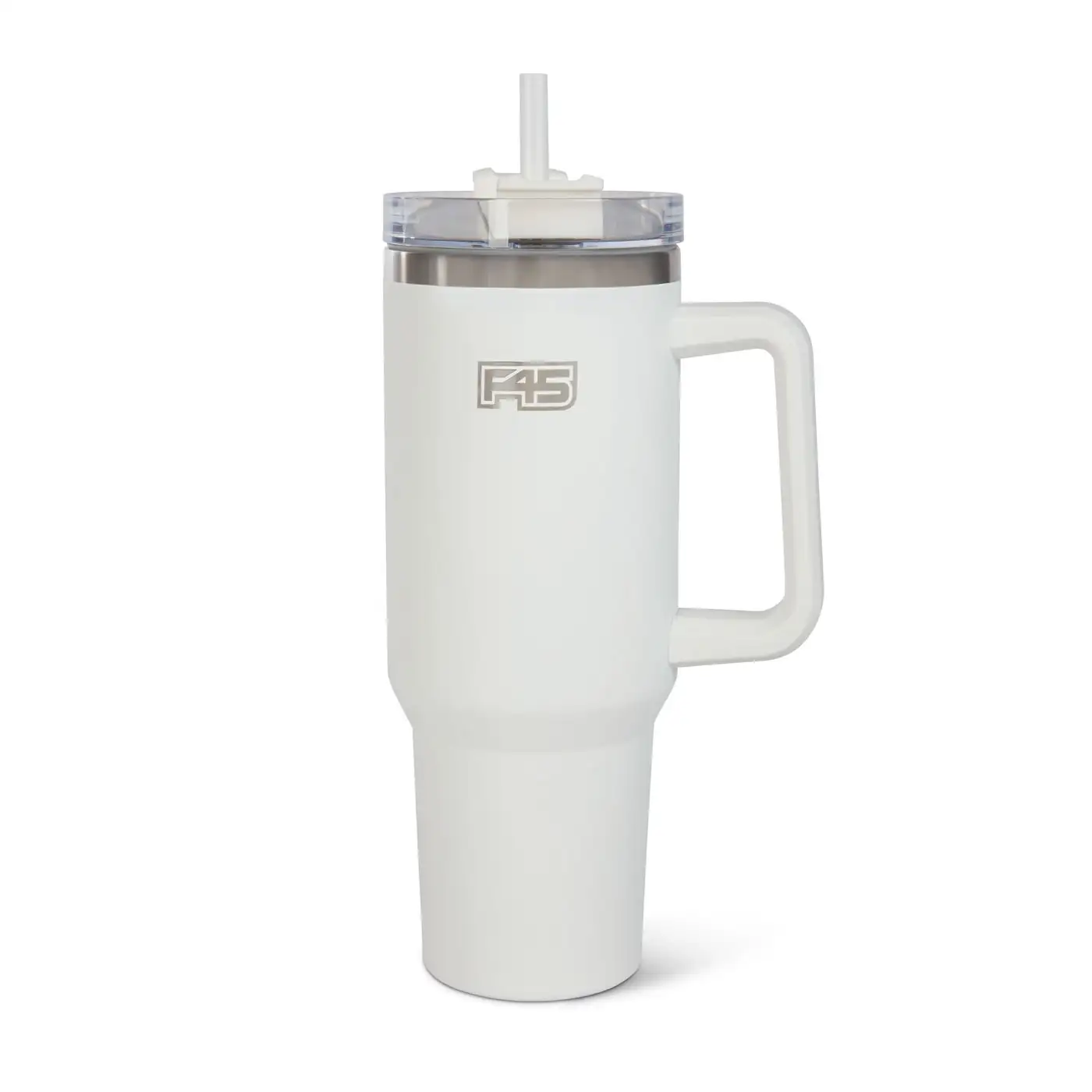A balanced diet and lifestyle are important for smashing your fitness goals. Regular exercise, an active lifestyle and healthy food intake are fundamental for improving men’s health and wellbeing. Within the fitness industry, men can find themselves bombarded with superficial knowledge about nutrition, supplements and muscle growth. Specifically, men have been the main target of high-protein diets, and although protein is important, having too much can negatively affect your health¹ or reduce the inclusion of other beneficial nutrients. The expert trainers at F45 do more than elevate your body, we’re here to help men make beneficial nutrition choices towards a healthy and balanced lifestyle.
While physical health and men’s nutrition remain important – mental health is as well. Many studies have shown that improving our nutrition can improve our mental condition2. In each F45 studio, we empower our members to follow a healthy diet and make rational nutrition and wellness choices. The awesome thing is, everything is connected! So, no matter where you’re at on your nutrition or fitness lifestyle, a high-intensity workout can help boost multiple areas of your life.

6 men’s nutrition tips and healthy habits
So, what does a healthy diet plan for men look like? And what are the habits that can influence men’s nutrition? Habits are formed over time, and positive exercise habits can be created in as little as 6 weeks³. Your intention is fundamental to developing a habit, and a great way to do this is to set fitness goals. Goals are a powerful way to motivate us, develop discipline and maintain a balanced lifestyle. Ahead, you’ll discover five positive diet and health lifestyle habits to implement alongside your F45 workout routine.
1. Quality control
Before stepping into a workout class, you might have heard certain ‘buzz words’ like bulking, cutting, maintenance, fasting or even intermittent fasting when it comes to men’s nutrition. Although these are all valid dietary choices and can be beneficial for certain fitness goals, they can also be overwhelming or simply aren’t realistic changes for beginners. Certain diet trends can also reinforce the stigma against men with eating disorders or body image issues4.
Studies show that 2-3 meals per day is recommended for weight loss and physical development5. Eating breakfast is recommended, mainly because eating earlier makes us less hungry later in the day, when we usually have more access to calorie dense snacks. This means our first two meals of the day should be the largest in portion, including energy dense foods. Especially if you’re resistance training and working out, these meals should have sufficient protein content.
2. Focus on protein
Protein is a core nutrient of any healthy diet for men. Common protein sources are lean meat and fish, eggs, dairy, seeds, nuts, beans and lentils. If your goal is to increase muscle mass or strength, F45 has optimally designed resistance and hybrid workouts. Protein consumption is typically all about building strength, but it can also:
- reduce feelings of hunger
- improve bone health6
- help you burn calories by boosting your metabolism7.
Meat as the main protein source is an idea that’s commonly marketed as the best food for men. Although meat can be useful for protein consumption, there are plenty of other ways to incorporate adequate protein into your diet, usually by eating more of other sources, or using supplements.
F45 trainer John Karpathakis swears by the power of protein. “Adequate protein intake is vital for muscle recovery and will keep you feeling satiated for longer,” he says. “If you’re trying to lose fat, protein has the highest thermic effect compared to other macronutrients: this means that your body will burn about 30% of the calories you consume from protein sources to digest it.”
3. Protein powder
Men are more likely to use dietary supplements than other genders, and usually take supplements to increase muscle mass or help with recovery8. Whey protein is a common supplement you’ll find in men’s nutrition, often used in protein shakes.
Consuming 25 grams of whey protein after an evening workout, and an additional 25 grams after morning exercise, is associated with improvements in muscle gain, recovery and the bodies protein balance9. Prior to taking any supplement, we advise that you do plenty of research, and to see your local physician before consumption.
That said, protein isn’t the only men’s nutrition supplement you can add to your diet. As John explains, “Men also have gender-specific nutrient needs, such as promoting healthy testosterone levels. My top nutrients to help with optimal testosterone levels are omega-3s, magnesium, zinc, and vitamin B6.”
4. Remain flexible with your diet
In men’s nutrition, a fundamental to sustaining a healthy diet and workout routine is flexibility. Flexibility helps us build a sustainable fitness routine and can refer to taking rest days, eating calorie dense food in moderation or simply making time for other social, family or personal commitments.
As with anything, balance is vital. John says, “Opt for balanced meals that include carbs and fats from fresh, whole, and unprocessed food sources. Foods that are high in fibre and probiotics are essential for gut health and proper digestion. If it comes in a package and has a TV commercial, avoid it!”
Any healthy diet plan for men is unnecessarily difficult to maintain if you’re not allowing yourself to eat the things you enjoy. As your body adapts to a new and more healthy diet, you will likely find you have less cravings for calorie dense foods and have more control over them. This way you can enjoy these foods in moderation as part of your diet plan. This is sometimes known as a “cheat meal”, or others give themselves a “cheat day”. Everyone is different and the best dietary plan is the one you can keep, some may find this means no cheat meals, others may find motivation in allowing themselves the occasional treat.
5. Make time for rest
Recovery periods and rest days are there to help our bodies lock-in the benefits of working out. This is when we repair our muscles to become stronger – without rest, we risk overusing our muscles, often resulting in injury.
Rest days are a great opportunity to enjoy a wider range of food. Being more present when we eat can promote wellness and appreciation for our body. Going for a walk is a useful way to incorporate low intensity activity into a rest day, and doing so in a group setting has shown to improve personal relationships and mental health10. Enjoy active recovery with the empowering community at F45 in our recovery sessions.
6. Hydration
Hydration is an essential part to men’s nutrition. Similar to an increase in portion size, you may find that you’ll drink more water naturally as working out will make you thirstier. It’s recommended to drink plenty of water 2-3 hours before working out to maximise performance, and within 2 hours after exercise to help with recovery 11. If you want something other than water, electrolyte sports drinks can improve recovery, but if following a weight loss-focused healthy diet for men, then you may experience better results with water11.
Quality men’s nutrition is essential to a balanced lifestyle. Next, learn about the unique relationship between nutrition and sleep.
1 https://www.ncbi.nlm.nih.gov/pmc/articles/PMC4045293/
2 https://www.ncbi.nlm.nih.gov/pmc/articles/PMC9441951/
3 https://pubmed.ncbi.nlm.nih.gov/25851609/
4 https://www.ncbi.nlm.nih.gov/pmc/articles/PMC3479631/
5 https://www.ncbi.nlm.nih.gov/pmc/articles/PMC6520689/
6 https://pubmed.ncbi.nlm.nih.gov/16373952/
7 https://www.ncbi.nlm.nih.gov/pmc/articles/PMC5537849/
8 https://www.tandfonline.com/doi/full/10.1080/19390211.2017.1326430
9 https://www.ncbi.nlm.nih.gov/pmc/articles/PMC5537849/
10 https://www.ncbi.nlm.nih.gov/pmc/articles/PMC5478529/
11 https://www.ncbi.nlm.nih.gov/pmc/articles/PMC8336541/













